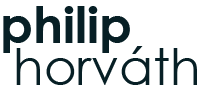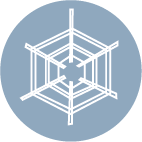Much of what has been written about innovation is about the mechanics of it. It doesn’t matter if it is top-down or bottom-up. Innovation doesn’t happen either way. Innovation happens from the inside out. All real innovations happen because of an individual. It is self-motivated, personal passion (without being given direction or orders or measures or processes) that drives people to innovate.
I have written before about how innovation starts with “I”, with the individual innovator. It’s about their passion, their drive to create something new.
For that, a mindset of Innovation is required. But how do you cultivate such a mindset of Innovation?
It is appropriate to start this endeavor with a question, because it’s more about questions than it is about answers.
An innovation mindset is dynamic, it is something that continuously evolves. Just like culture, it is not something that you install and then it will be there. It is something that you, as an individual and your team, as individuals, have to constantly foster and grow – the etymological roots of culture and cultivation, which come from farming.
So, here are a few questions to ask yourself:
- How am I being a leader right now?
- How am I using my genius?
- How am I tapping into my multiple intelligences?
- How am I collaborating right now?
- How am I striving for wisdom?
- How am I creating progress?
Each of these questions will help you continue to evolve your mindset toward being more innovative. You can ask yourself these questions in any situation: In the middle of a boring meeting. In the middle of interacting with your team. In the middle of eating lunch. The key is to keep asking, and by doing so cultivate an Innovation mindset.
So let’s take a closer look:
How am I being a leader right now?
Leadership is about being willing and able to address a situation that you take interest in.
When you are a leader, you don’t care about followers. You care about doing what needs doing. Being willing has to do with your values. You are willing if you deeply care. You care, if what is going on means something to you personally, is an expression of what you value.
Skills don’t matter as much as alignment around your values. Skills can be acquired.
This brings us to the second aspect of the statement above: “being able”. Being able does include skills, but it also entails permission. A sense of permission. To be able means I have the skills and I feel that it is okay for me to step up – even if I might fail. So give yourself permission, even if nobody else does. Otherwise you will lose interest quickly.
Interest comes from Latin and means being in the middle of. You have to feel that you are an integral part of something in order to be a leader. If you feel like a cog in the machine, or worse have no sense how your contribution ties into the big picture, you will not have much interest in being a leader. Asking yourself how you are being a leader and deciding to be one, will unleash your creativity by default.
How am I using my genius?
Speaking of creativity: We call people like Einstein and Picasso geniuses. Technically, this is an incorrect use of the word. A person is not a genius, a person HAS a genius. Everybody does. Your genius is your highest potential, who you can be. Who you don’t even know you can be until you tap into it.
As Picasso said (and science indicates): “Everyone is born an artist. The trick is to remain one.”
Unfortunately, most schools in the world quickly bury most people’s genius: By being told that you are not good at something, that you are stupid, or by means of any other similar self-defeating and self-limiting thoughts. Most people give up. They settle into complacency, give up the notion that they could be artists, creators, innovative. Not everyone can be good at everything. But each of us has talents – and the ability to tap into something bigger than ourselves. That space from which ideas are birthed.
Give yourself the encouragement, the environment and the time and space to tap into that genius. Eureka moments come after delving deeply into a subject and then letting go. We have our best ideas in the shower, on walks in nature, in the bar after a long day at work – in short when doing something else. After seeding the brain with content, change the context and allow for ideas to bubble up. Nobody is creative on command. Immerse yourself in the subject matter, then let go and let your genius take over.
How am I tapping into my multiple intelligences?
Each of us has multiple intelligences. We have finally opened up to the notion that intelligence is not limited to solving puzzles and doing math. That is only one kind of intelligence. But there are multiple intelligences:
- Physical Intelligence – The intelligence of the body. This includes nutrition, sleep, hydration, movement. It is the intelligence of the athlete, the yogi, the kung fu master. It is the intelligence of the ancients. It is the intelligence we use when we pay attention to how our body reacts to something. Are your muscles relaxed? Tight? How is your breath? Freeflowing? Constricted? What are you feeding your body? Sugar and coffee? Apart from dehydrating your body, they also shut down your emotional intelligence.
- Emotional Intelligence – Your intuition, your gut feelings. Your propensity to like or not like something. It is the intelligence we have in common with animals. A dog knows what he likes or doesn’t like. Cats are even more apt to show those emotions – unlike dogs, they don’t seem to have the need to please their owners as much. They are in that regard more honest. Next time your are in a meeting, tap into your emotions. Are the ideas presented something you feel attracted to? Do you want to move toward them or away from them?
- Mental Intelligence – What we most commonly refer to as intelligence. That which is measured in IQ tests. The ability to perceive and manipulate patterns and symbols.
- Relational Intelligence – Often confused with emotional intelligence, relational intelligence is about understanding connections, feeling empathy, seeing how a room or a crowd moves. Understanding who is playing which role.
- Creative Intelligence – Akin to your genius, this intelligence is about stepping outside of yourself. It’s Einstein riding the light beam. The realm of artists. It’s the realm of symbolic intelligence, of metaphor, of seeing something for what it is not.
- Holistic Intelligence – Is about seeing the big picture, how something relates to everything. About understanding context rather than content.
- Conjuring Intelligence – Here we enter the realm of consciously programming reality for yourself and others.
Each of us has propensities for certain intelligences. Not everyone is an athlete, not everyone can write computer code. But each of us has at least access to some of that intelligence. To foster them in yourself, and in the very least to pay attention to them, actively facilitate check-ins, is a first step in utilizing your intelligences toward becoming more innovative.
How am I collaborating right now?
Everyone has something to contribute – not everyone feels they do. This ties into permission, into feeling that your participation is truly valued. There are introverts and extroverts, or more correctly stated: people with more introvert or extrovert tendencies. There are those who dominate every conversation and the quiet voices in the room. To truly collaborate means going beyond the default configuration of an interaction. It means quieting the loud voices and actively engaging the quiet voices in the room. It means being willing to be vulnerable. It means truly bringing your whole self to the table, and encouraging by example and active facilitation to allow others to do the same. It means checking your ego at the door and making it a growth process for everyone involved. It also means reaching out to others. Asking yourself this questions opens a pool of resources otherwise inaccessible.
How am I striving for wisdom?
A project is not finished when you reach the deadline. A project is finished when everyone who participated can now do something they couldn’t do before. When everyone has grown in the process. Every project needs to have a debrief where you examine what was learned.
Aim past the finish line: just like when you try to hit through a wooden board, you don’t focus on hitting the board, you focus on a point beyond the board.
Wisdom is achieved by reflection. Knowledge is about asking good questions, wisdom is achieved when you put them to the test and reflect on the results.
How am I creating progress?
Progress is about advancing. Not just your company, your bottom line, but everyone involved and affected by your actions. It’s about all the stakeholders of a project or business. If everyone truly benefits you have achieved something that is real.
We live in a world corrupted by greed, by win-lose propositions. That is not progress. It is advancement of a few at the expense of the many. True progress is reached when you create win-win-wins, when people, environment, your vendors, your customers, and everyone involved in the delivery of your value proposition ends up a winner. Ends up profiting. Not necessarily monetarily. Profit, from Latin, means: “may it be forwarding”. True profit only knows winners. True progress only knows true profit.
So when you ask yourself how you are creating progress, this involves not just you, your team, your organization, but also humanity and the planet as a whole. Are you creating a tomorrow that you would want to leave behind not just for your children but everyone’s children? Only then are you creating real progress.
Keep asking these questions
I have introduced these key questions as a framework which you can use to make yourself more innovative. Again, this is not something that you can do from one day to the next. It is a constant learning process and it starts with you. Your own self. Who you can become. The expression of your leadership, your genius, your intelligences, your collaboration, your wisdom, and the progress you create as a result. It requires integrity and authenticity, it requires risk and being willing to fail. And if you do fail, to in the least learn from it and do it better next time.
So keep asking yourself these questions and watch yourself grow to be ever more innovative.

